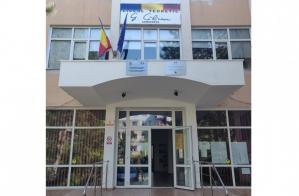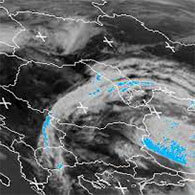The European Commission aproves 5 decisions on new GMOs
The European Commission aproves 5 decisions on new GMOs
02 Mar, 2010 19:10
ZIUA de Constanta
 1749
Marime text
1749
Marime text
 1749
Marime text
1749
Marime text
The European Commission announced today its intention to come up with a
proposal by the summer to allow more choice to Member States in
deciding whether to cultivate GMO's. Under the current legal framework,
as decided by the Council and the European Parliament, the Commission
adopted today two decisions concerning the Genetically Modified Amflora
potato: the first authorises the cultivation of Amflora in the EU for
industrial use, and the second relates to the use of Amflora's starch
by-products as feed. The European Commission also adopted today three
decisions on the placing on the market of three GM maize products for
food and feed uses but not for cultivation. All five authorisations
were subjected to the highest scrutiny, ensuring all concerns regarding
the presence of an antibiotic resistance marker gene are fully
addressed. The Decision to authorise the cultivation of Amflora is the
end of a process which started in Sweden in January 2003 and is based
on a considerable volume of sound science.
Health and Consumer Policy Commissioner, John Dalli noted: "Responsible innovation will be my guiding principle when dealing with innovative technologies. After an extensive and thorough review of the five pending GM files, it became clear to me that there were no new scientific issues that merited further assessment. All scientific issues, particularly those concerning safety, had been fully addressed. Any delay would have simply been unjustified. By taking these decisions, the European Commission fulfils its role in a responsible manner. These decisions are based on a series of favourable safety assessments carried out over the years by the European Food Safety Authority (EFSA).In parallel we have today launched a reflection on how to combine a European authorization system with the freedom of Member Sates to decide on cultivation on GMO's. "
In line with the political guidelines of President Barroso of September 2009, Commissioner Dalli has been asked to come forward with a proposal by the summer setting out how a Community authorisation system, based on science, can be combined with freedom for Member States to decide whether or not they wish to cultivate GM crops on their territory.
After a comprehensive authorisation procedure, which started in 2003, and repeated favourable scientific opinions, the Commission decided to authorise Amflora. This GM potato is to be used for the production of starch that is suitable for industrial applications (e.g. paper production). This innovative technology helps to optimise the production process and to save raw materials, energy, water and oil based chemicals.
The decision provides for strict cultivation conditions to prevent the possibility that GM potatoes will remain in the fields after harvest and to ensure that Amflora's seed will not be inadvertently disseminated into the wider environment. A complementary authorisation is taken in order to cover the by-products of the starch extraction when they are used as feed.
The European Commission also adopted today three decisions authorising GM maize MON863xMON810, MON863xNK603, MON863xMON810xNK603, for food and feed uses and import and processing.
The three GM maize products received a positive opinion from EFSA and underwent the full authorisation procedure set out in the EU legislation. They are produced by conventional crossing of two or three GM maize -namely MON863, NK603 and MON810- that are already authorised in the EU for food and feed uses and import and processing.
As Member States failed to return qualified majority decisions for or against these decisions in the Council, the dossiers were sent back to the Commission for decision.
The presence of an antibiotic resistance marker (ARM) gene in the GM starch potato and the three GM maize products was subject to the highest scrutiny. EFSA examined this issue and issued a separate favourable opinion on 11 June 2009.
The authorisations are valid for 10 years.
For more information please see:
MEMO/10/58
http://ec.europa.eu/food/food/biotechnology/index_en.htm
Health and Consumer Policy Commissioner, John Dalli noted: "Responsible innovation will be my guiding principle when dealing with innovative technologies. After an extensive and thorough review of the five pending GM files, it became clear to me that there were no new scientific issues that merited further assessment. All scientific issues, particularly those concerning safety, had been fully addressed. Any delay would have simply been unjustified. By taking these decisions, the European Commission fulfils its role in a responsible manner. These decisions are based on a series of favourable safety assessments carried out over the years by the European Food Safety Authority (EFSA).In parallel we have today launched a reflection on how to combine a European authorization system with the freedom of Member Sates to decide on cultivation on GMO's. "
In line with the political guidelines of President Barroso of September 2009, Commissioner Dalli has been asked to come forward with a proposal by the summer setting out how a Community authorisation system, based on science, can be combined with freedom for Member States to decide whether or not they wish to cultivate GM crops on their territory.
After a comprehensive authorisation procedure, which started in 2003, and repeated favourable scientific opinions, the Commission decided to authorise Amflora. This GM potato is to be used for the production of starch that is suitable for industrial applications (e.g. paper production). This innovative technology helps to optimise the production process and to save raw materials, energy, water and oil based chemicals.
The decision provides for strict cultivation conditions to prevent the possibility that GM potatoes will remain in the fields after harvest and to ensure that Amflora's seed will not be inadvertently disseminated into the wider environment. A complementary authorisation is taken in order to cover the by-products of the starch extraction when they are used as feed.
The European Commission also adopted today three decisions authorising GM maize MON863xMON810, MON863xNK603, MON863xMON810xNK603, for food and feed uses and import and processing.
The three GM maize products received a positive opinion from EFSA and underwent the full authorisation procedure set out in the EU legislation. They are produced by conventional crossing of two or three GM maize -namely MON863, NK603 and MON810- that are already authorised in the EU for food and feed uses and import and processing.
As Member States failed to return qualified majority decisions for or against these decisions in the Council, the dossiers were sent back to the Commission for decision.
The presence of an antibiotic resistance marker (ARM) gene in the GM starch potato and the three GM maize products was subject to the highest scrutiny. EFSA examined this issue and issued a separate favourable opinion on 11 June 2009.
The authorisations are valid for 10 years.
For more information please see:
MEMO/10/58
http://ec.europa.eu/food/food/biotechnology/index_en.htm
Urmareste-ne pe Grupul de Whatsapp
Comentarii
 Fondul Documentar Dobrogea de ieri și de azi
Fondul Documentar Dobrogea de ieri și de azi








_thumb2.jpg)

























